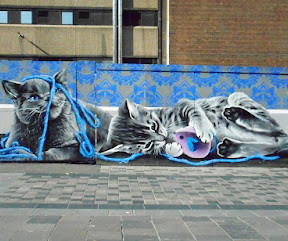Book review: Copyright in the street. An Oral History of Creative Processes in Street Art and Graffiti Subcultures
The IPKat
JULY 9, 2023
An Oral History of Creative Processes in Street Art and Graffiti Subcultures ”, authored by Enrico Bonadio (City University of London). As its title suggests, this book focuses on the relationship between US copyright law and street art and graffiti. The second chapter is entitled “Creativity and originality of graffiti lettering”.













Let's personalize your content